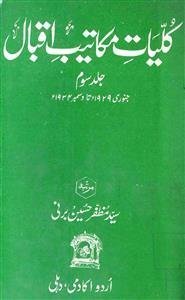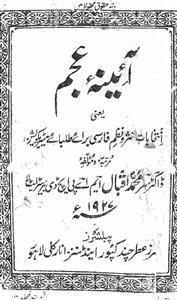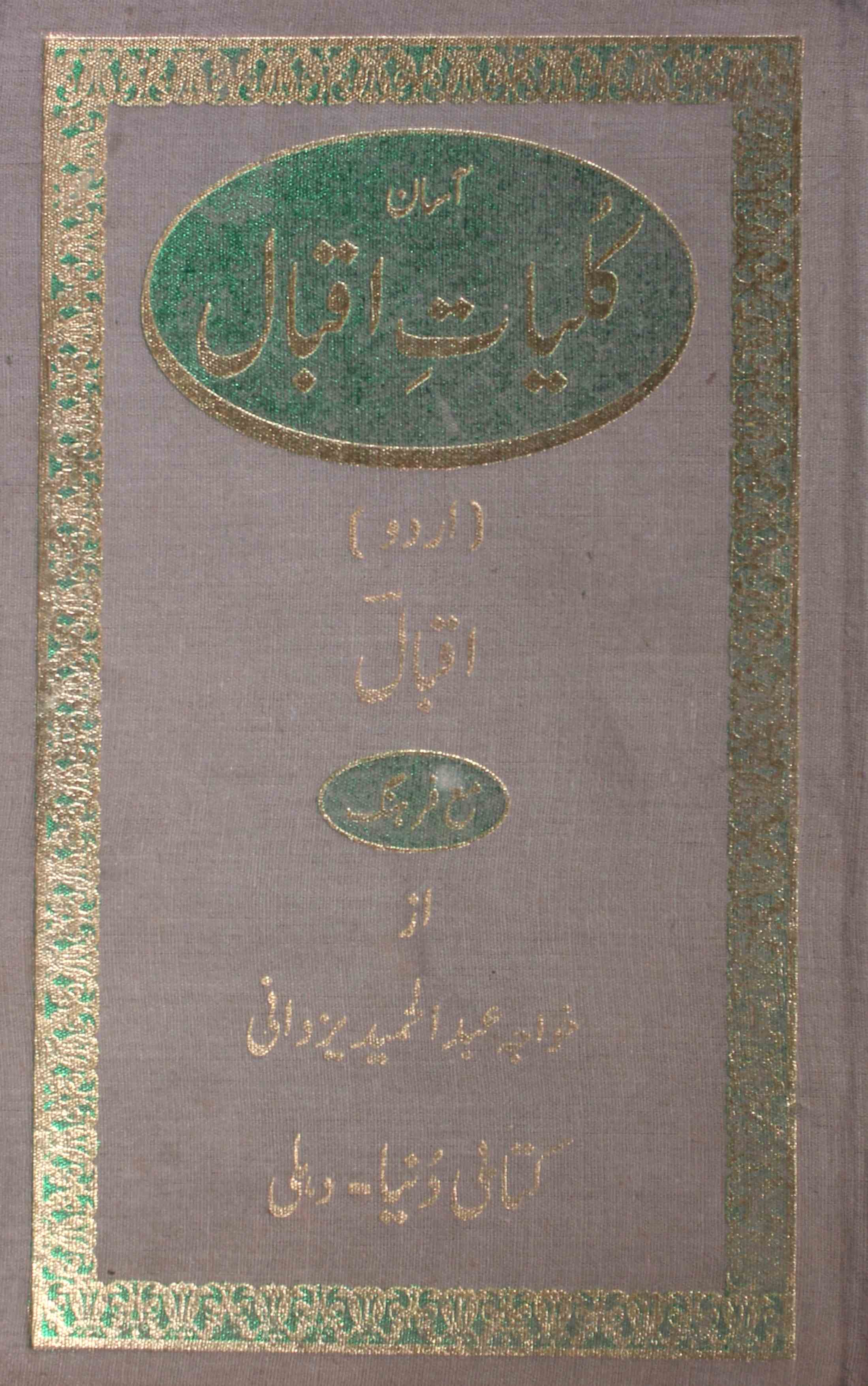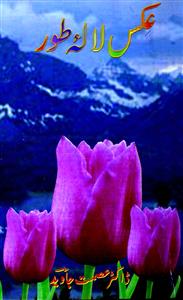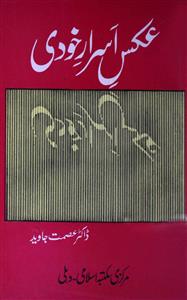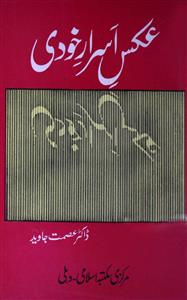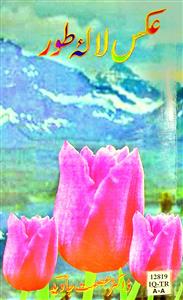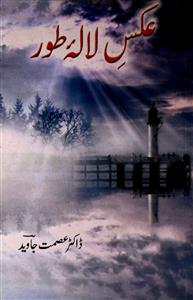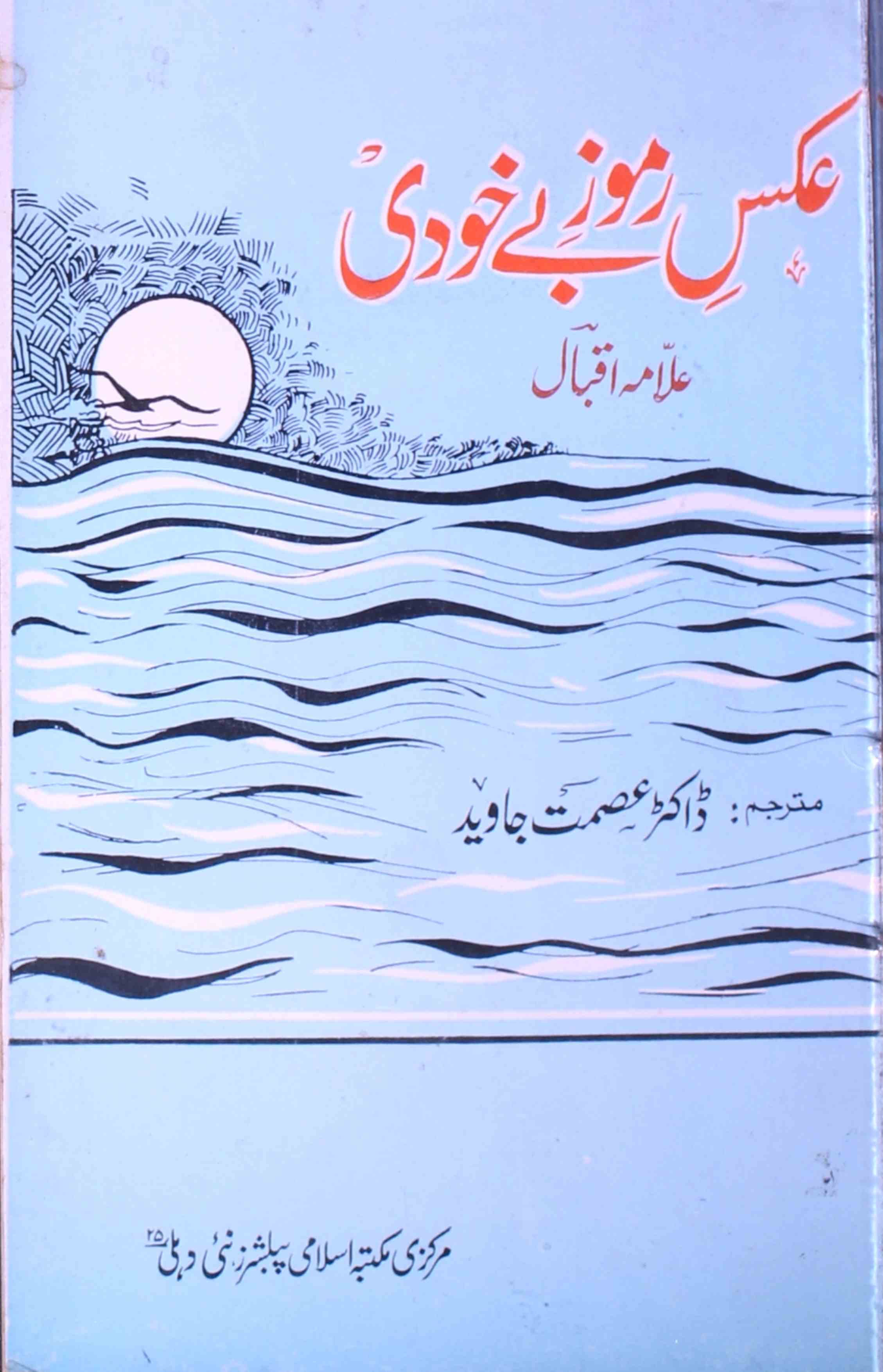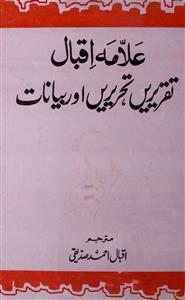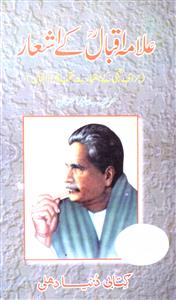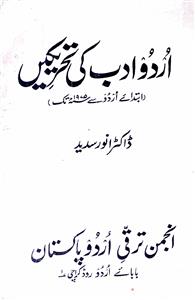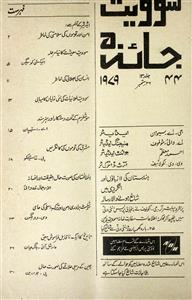 For any query/comment related to this ebook, please contact us at haidar.ali@rekhta.org
For any query/comment related to this ebook, please contact us at haidar.ali@rekhta.org
About The Book
شاعر مشرق اقبال ایک بڑے شاعر ہی نہیں اپنے عہد کے ایک بڑے دانشور ، سیاسی رہنما،محب وطن اور عالم تھے۔ان کا اردو وفارسی کلام ، ان کے دانشوارانہ ،مفکرانہ مقالات کے مجموعے کےساتھ ان کے خطوط بھی فکر و دانش کا مرقع ہیں۔خطوط میں ان کی ادبی، علمی ،سیاسی اورذاتی شخصیت کے اہم پہلونمایاں ہیں۔جن کا اظہار اس اکملیت کے ساتھ شاعری میں نہیں ہوسکا۔جناب مظفر حسین برنی نے علامہ اقبال کے خطوط کو بڑی محنت اور جاں فشانی سے جمع کیاہے اورانھیں ایک خاص ترتیب سے کتاب ہذا میں یکجاکیا ہے۔جس میں شاعر مشرق علامہ اقبال کے تمام اردو اور انگریزی خطوط تاریخی ترتیب اور ضروری تعلیقات وحواشی کے ساتھ شامل کیے گئے ہیں۔اس تاریخی ترتیب سے کل خطوط کا مطالعہ کرنے سے اقبال کی سوانح نگاری کا کام بھی بہت سہل ہوجائے گا۔اس کے علاوہ ان خطوط کے مطالعے سے یہ بات معلوم ہوتی ہے کہ اقبال خطوط نویسی میں کوئی اہتمام خاص نہیں کرتے تھے یعنی القاب بہت مختصر اور مکتوب الیہ کے رتبے کی رعات سے لکھتے تھے۔عبارت میں اختصار کے ساتھ جامعیت ہے۔عموما چھوٹے چھوٹے جملے ،کبھی قلم برداشتہ ،کبھی تاریخ مع ماہ و سال پوری ہوتی اور کہیں صرف ماہ اور تاریخ ،بعض خطوط نہات ہی مختصر اور ذاتی ہیں ،بعض علمی و ادبی اعتبارسے اہمیت کے حامل ہیں۔اس طرح "کلیات مکاتیب اقبال " اقبال کی شخصیت و فن کو سمجھنے میں اہم ہے۔جس میں سید مظفر حسین برنی صاحب کاخطوط اقبال سے متعلق مستند مقدمہ بھی شامل ہے۔ یہ خطوط کئی جلدوں میں ہیں۔ زیر نظر جلد سوم ہے۔
About The Author
Mohammad Iqbal (1877-1938), a descendant of a Kashmiri Brahmin family that had embraced Islam in the seventeenth century, was born and settled in Sialkot. After a traditional education in Arabic, Persian, and Urdu, he was exposed to a liberal education that defined the contours of his thought and his poetry during the entire period of his life. Beginning his educational career at the Scottish Mission School, he went on to acquire his M. A. in Philosophy, before joining Trinity College, and later earning the degree of Bar-at-Law. He furthered his education by getting the degree of doctorate from Germany on The Development of Metaphysics in Persia. He worked in different capacities at different points of time; he taught philosophy, practised law, got involved in politics, and also attended the second Round Table Conference. Even while he favoured the idea of the creation of Pakistan and is venerated there as the national poet, he wrote the famous patriotic song that celebrates the greatness of India. King George V decorated him with knighthood and he was called Sir Mohammad Iqbal thereafter.
Iqbal wrote both in Persian and Urdu, and is often regarded as the poet-philosopher of the East who addressed the Muslim ummah, believed in the philosophy of wahdatul wujood, and propounded the philosohy of khudi, or selfhood, which called for self-realisation and the discovery of the hidden talent with love and perseverance. Beyond that lay the stages of complete submission and forgetfulness which, he thought, was the ultimate stage of khudi. Iqbal dreamt of the ‘complete man’ and also entered into a metaphoric dialogue with the divine. His poetry emerged as a remarkable site where message and art coalesced, as he re-configured major poetic devices like metaphor, myth, and symbol to re-visit history, philosophy and the Islamic faith to develop his individual vision. He has left behind his collections of poems, Asraar-e Khudi, Rumooz-e Bekhudi, Baang-e Daraa, Baal-e Jibreel, Payaam-e Mashriq, Zaboor-e ‘Ajm, Javed Naama, Zarb-e Kaleem, and Armaghaan-e Hijaz, apart from his lectures collected in English as The Reconstruction of Religious Thought in Islam, and other works on the Eastern worldview.
 For any query/comment related to this ebook, please contact us at haidar.ali@rekhta.org
For any query/comment related to this ebook, please contact us at haidar.ali@rekhta.org
Write a Review
Jashn-e-Rekhta 10th Edition | 5-6-7 December Get Tickets Here
